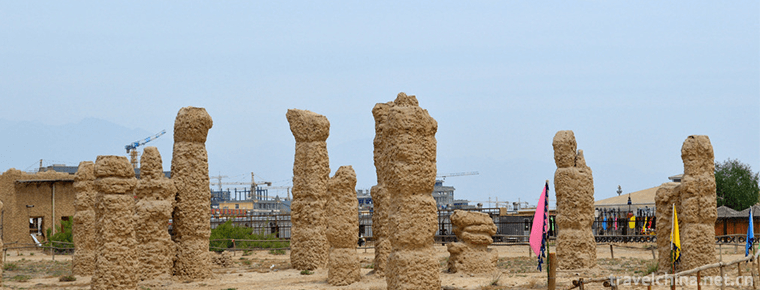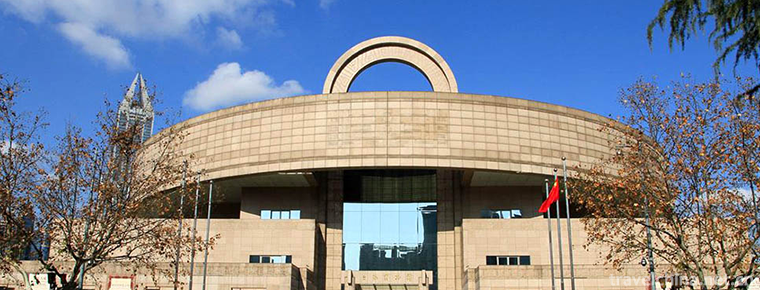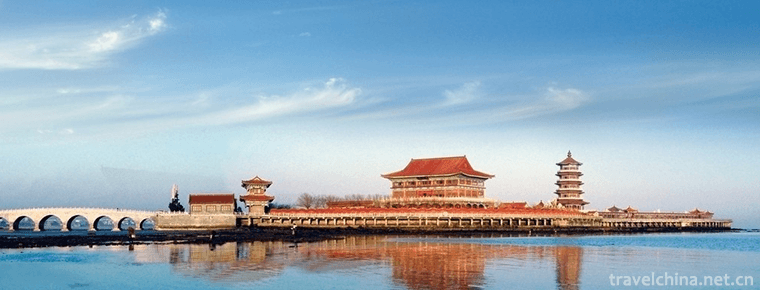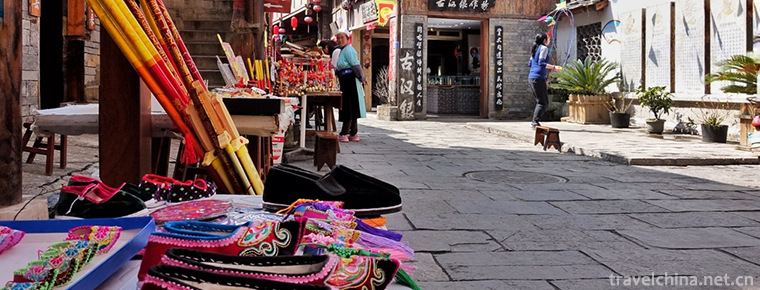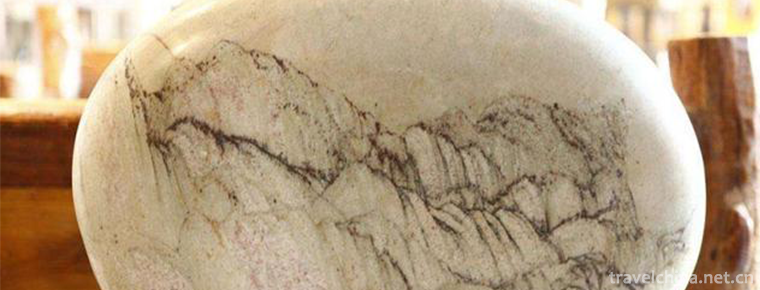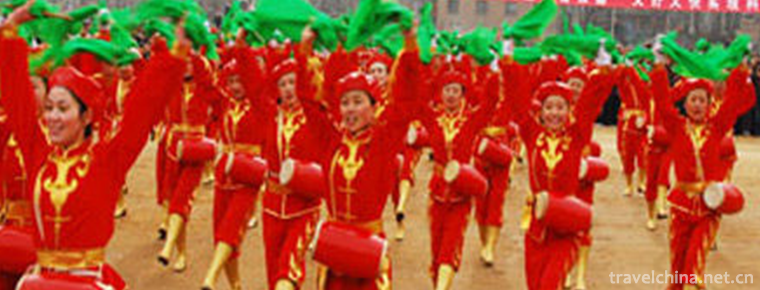Falling cavity Luoqiang
Falling cavity Luoqiang
Luoqiang is a traditional opera in Neihuang County, Anyang, Henan Province. It was originally called Luoziqiang, also known as Anyang Qiang. It is mainly prevalent in the Zhanghe River Basin in the north of Henan Province and adjacent to Shanxi, Hebei and Shandong provinces. Falling tune, evolved from the folk opera "Lotus Flower Fall", is a kind of rap and singing style song used by Song Dynasty's Lu Qi people and terrace disciples to make a living. It is usually a seven-word fluent, sometimes used as the engine of stories, and developed into a long tune in Yuan Dynasty. By the Qing Dynasty, it had evolved into a form of singing stories once an ugly man appeared on the stage.
In May 2011, the "falling cavity" declared by Neihuang County in Henan Province was listed in the third batch of national intangible cultural heritage list with the approval of the State Council.
historical origin
Orion of the Name
History also has its own "voice" or "salvage voice". In 1927, Henan Drama, a provincial chronicle of the Chinese Book Bureau, contained: "An Yang Opera is a Laozi Opera, the most prosperous in Anyang, from Nanzhi to Ji and Hui Counties...". It was also developed from local folk song minor and changed its name to "Music Tune" in the 1950s because of its lively and happy tune.
Qing Dynasty
From the late Qing Dynasty to the Guangxu Period, the falling tune gradually changed from the description or narration to the form of "dressing up lotus flower falls" and singing stories with different roles. The performance form of lotus flower falls also had a great breakthrough. It gradually evolved from one person playing multiple roles and adopting the way of jumping in and out, to a theatrical performance mode of many people, many roles, different performances and many repertoires. Completed the transition from the simple "cavity" to the complex "drama", so far there has been a prototype of drama. During the transition period from "tune" to "opera", an artist surnamed Zhao dressed up as "lotus flower falls" made great contributions. He skillfully combined Neihuang local folk songs with "lotus flower falls" and fixed the tune pattern at that time. He led other artists to perform some short programs on stage during the festival, which was very popular, and the masses called "Neihuang falls son". Zhao Yiren and other founders created a large number of dramas of falling tune, which made falling tune widely spread in Neihuang and surrounding cities.
During the reign of Qingdaoguang and Xianfeng, falling into tune was popular in Anyang-Neihuang area. More and more people learned and sang falling into tune. "Wu'an County Chronicle" records: "In the early years of Xianfeng in the Qing Dynasty (1851 A.D.), Wu'an artist Li Xishun came to Neihuang four times, looking for Zhao artists, learning and falling into tune." It shows that the falling cavity had a certain influence at that time. In addition, the popularity of falling tone is not unrelated to the current situation at that time. At the end of the nineteenth century, the people of Neihuang and its vicinity suffered from war, natural disasters and man-made disasters, which made life difficult for them. So that some people devote themselves to the theatre to make a living by learning to perform. During this period, the dramas of falling tone were mostly based on folklore and family stories. The contents were easy to understand, the local flavor was very strong. People often remembered what they were doing at home when they watched the play. Therefore, people liked it very much. In addition, the clothes and props for performing falling tone were relatively simple and easy to put on. Two or three people could perform in groups, so falling tone developed very fast. According to the Record of Henan Falling Tune Music Integration, during the Tongzhi Period of the Qing Dynasty, Wu Sanmazi, the great landlord of Neihuang County, formed a Falling Tune Class Society. He took in Jia Chengquan, a famous artist from Wu'an, Hebei Province, together with some local artists who started their nesting classes while performing and receiving apprentices, and once became the largest Falling Tune Class Society in Neihuang County. The Niantouwo class has been run for three periods, and more than 100 apprentices have been recruited. Later, Zhao Qingwen and Wang Haichang, who became famous artists of falling tone, had studied in Niantouwo Class. However, due to the war, the head grinder was forced to disband. However, the role played by the head grinder in the history of falling cavity can not be ignored. It can be said that the head grinder made falling cavity popular all over the old Yellow River. But at this time, the falling tone is only active on the "platforms" of the vast countryside, rarely performing in larger cities. Due to the exclusion of the main operas such as Peking Opera, Bangju Opera and Opera Criticism, such folk operas as fallen tune can not enter the hall of elegance at all, nor can they occupy a larger city and a better theatre. At most, they can be performed in the theatre of the tent in the corner of the city. The Sixteen Years of the Republic of China "New Records of Henan" contains: "Laozi Tune... Simple and despicable, each number of people for the stage, performing in the barren village of Taihang Mountains.... If you think about gods, superstitions, masculine and masculine drama, to flower drum, monkey drama, two strings, Anyang Opera, Gong opera and the city of men and women co-performers are the most. So it was just a entertainment project for the masses and a kind of opera that was not officially recognized, but it also reflected its popularity and the originality of the lower class people from another aspect, and also reflected that it was a popular folk art with unique style at that time. In its popular areas, some traditional plays, such as "Blue Bridge Club", "Little Two Sisters Dreaming" and "Little Joy Only Getting Dowry", all reflect the daily life of the people and the joys and sorrows of the lower class, the relationship between mother-in-law and daughter-in-law, marriage, labor and other aspects of life.
At the end of the Qing Dynasty, falling tones prevailed, and classes and associations in northern Henan were generally established. During this period, falling tones also developed greatly, forming three major schools. They are Anyang, Linxian, Chengan, Linzhang as the middle road, called Laozi Cavity; Wu'an, Shexian as the West road, called Wu'anluozi; Neihuang, Weixian, Qingfeng, Nanluo, Slipping County, Puyang as the East road, called Laozi Cavity. The three schools have their own characteristics, Wu'anluozi's voice in the west is changeable, fluctuant and loud, and the voice in the middle is flat, but the voice in the middle is rough and exquisite, and the flickerboard in the stolen characters is good at singing in the flower tune; the voice in the East is smooth and simple, with clear and tragic pronunciation. In the early period of the Republic of China, the falling chamber clubs in Neihuang sprang up like bamboo shoots after a spring rain and developed rapidly. There are no fewer than 20 well-known and temporarily built social classes, such as the Rongtou Section, Duan Zhen's Beijie Theatre, the Migrant Village Theatre, Ducun Theatre and Nanyezhuang Theatre, which are managed by Yang Zhaolin and Duan Zhen. For a time, Neihuang cave was very busy. There were basically a set of cave troupes in every village and township that could perform on stage. But at this time, the dramas have not changed much.
the Republic of China era
The 1911 Revolution (1911) overthrew the rule of the Qing Dynasty and ended more than two thousand years of feudal autocracy. At that time, the thought of "dramatic improvement" advocated by progressive intellectuals gradually penetrated into Henan opera circle. The Education Department of Henan government clearly pointed out that drama should be used as an assistant education tool. "In the second year of the Republic of China (1913), Kaifeng, the provincial capital, established the New Theatre Troupe, which performed a number of civilized dramas advocating patriotism and anti-feudalism. It is the first time that Henan Drama has been improved. In the same year, the New Player of Beijing Opera Changqing Ban gave a performance in Fengluoyuan, which aroused strong repercussions in Kaifeng and Henan theatre circles, and had an important impact on the improvement of Henan local opera. In the 16th year of the Republic of China (1927), Feng Yuxiang actively advocated popular education and dramatic improvement after presiding over Henan government. In the name of Henan Education Department, he published in 1928 the Regulations for Drama Training in Henan Counties, the Measures for Examining and Reviewing Dramas by Henan Education Department, and the Brief Chapter of the Committee for Improving Dramas in Henan Counties. Neihuang Louqiang responded positively to the call of the provincial government and made great reforms in the theme of opera, mainly in the aspects of quitting smoking, gambling, footing and anti-arranged marriage. In addition, in the exchanges with local operas, it not only adds a lot of repertoires, but also has a breakthrough development in stage design, acting action and character modeling. With more and more extensive exchanges, the performance area of falling tone has gradually expanded to Shandong, Hebei and other places. However, in terms of the breadth of its subject matter and the depth of its criticism, it is still in the primary stage of democracy and fails to touch the fundamentals of society.
the period of the war of Resistance Against Japan
After 1937, the whole country set off a climax of the Anti-Japanese War. The war of more than ten years did not make it disappear, but made it create a lot of dramas reflecting the social reality of that time. During the Anti-Japanese War, under the leadership of the Communist Party of China, some classes and societies that performed in a fallen voice not only insisted on performing in villages and villages, but also actively propagated the anti-Japanese ideology of saving the country and patriotizing the people and opposing aggression. In the period of the War of Liberation, besides performing traditional plays, modern plays such as "Making Army Shoes", "Li Laicheng's Family" and "Joining the Army with Black Eggs" were also arranged and staged. These plays have played a great role in promoting propaganda, mobilizing and organizing the masses to carry out revolutionary struggle. At the same time, the art of falling into tune has also been developed and sublimated.
After the founding of PRC
At the beginning of the founding of the People's Republic of China, the falling tone developed to its heyday. In the land reform movement, the fallen-tone amateur theatre troupe spread all over the area of Yangyang. In some of the original plays, modern dramas such as "Fighting Landlords", "Wang Gui and Li Xiangxiang", "Brothers Opening up Wilderness", "Blood and Tears Enmity" and self-compiled current affairs plays were newly created. Their contents mainly reflected farmers'keen desire for land and support for the Party's policies, and played an active role in mobilizing the masses and organizing the masses. Function. In 1955, on the basis of Niantou Village Opera Troupe, some artists from Qingfeng County were absorbed and Neihuang County Opera Troupe was established. After the establishment of the troupe, appropriate adjustments have been made in some aspects. For example, three strings, low hu, pipa, Cello and moon piano have been added to the musical instruments, which has also made a breakthrough in the gender of the actors. Before the founding of the People's Republic of China, "Xiao Sheng, Xiao Dan and clowns were the main actors in Luo Zi Opera, Lao Sheng, Lao Dan and Huafa were also the main actors, but without them, the female roles were always played by male actors." This time, the troupe also absorbed some female actors; in addition, "in the name of the opera, Luo Qiang was absorbed from other types of operas, such as Wenqu brand, silk string opera card Like the old Quail in Henan Opera, Qianshou Buddha comes from four strings; gongs and drums in Louqiang Wuchang are mostly absorbed from Beijing Opera or Henan Opera except for opening gongs and drums ; gongs and drums used in singing are partly the same as those used in Henan Opera and Hebei Bangzi. On the basis of these developments and changes, Neihuang County Musical Opera Troupe has developed rapidly and gained a great reputation.
In 1956, Neihuang County Musical Opera Troupe participated in Henan Province's first opera performance. The traditional opera "Borrowing Pian" won the first prize, and its leading actor Zhao Qingwen also won the first prize for performance. Zhao Qingwen is brave in innovation and takes the advantages of many families. He skillfully combines local Sanqu such as "flower drum" with falling tune, which greatly enriches the rhyme of the tune and makes falling tune art take a big step forward. With his unremitting pursuit of art, Zhao Qingwen has also become the most successful artist in the modern era. Local people used to have the proverb "throw down the basin and think of Zhao Qingwen", "sell Zhuangzi and sell land, but also look at Zhao blind man (Zhao Qingwen)'s"borrow a bun".
"In 1959, the Huangxian Musical Opera Troupe was sent to the Old Tapo Garden Farm, which was restored in 1963." During the Cultural Revolution, amateur troupes in the countryside were forced to stop performing or dare not perform because they could not keep up with the situation because they were only allowed to sing "model operas". In order to keep up with the situation, Neihuang County Musical Opera Troupe was forced to merge with Henan Opera Troupe in 1968, and was not separated until 1974. After the smashing of the Gang of Four, amateur theatre troupes in the countryside recovered to some extent. At the same time, they began to perform traditional plays, they also trained a number of new forces, increased semi-professional troupes such as the Peace Opera Troupe, and received the "Business Performance Certificate of the Folk Opera Troupe" issued by the government. Like professional troupes, they can perform in the countryside all the year round. By the 1980s and 1990s, the voice had been falling downhill and there had been no regular performances. Nowadays, Falling Tune has become one of the endangered dramas in Henan Province.
Inheritance significance
Ornamental value
Falling out of tune has a history of 300 years, which is derived from the art of rap and singing. The content of falling tone mainly reflects the daily life of the people and the happiness, anger and sorrow of the lower-class people, the relationship between mother-in-law and daughter-in-law, marriage and marriage, labor and other aspects of life. Such dramas as "Borrowing Pian", "Blue Bridge Club", "Little Two Sisters Dreaming", "Little Joy Only Drives Dowry" and so on, are full of rural peasants'breath, expressing the people's life concept and attitude clearly, and revealing the common people's respect for the truth, goodness and beauty of life, and the criticism of fake, ugly and evil, which truly reflects the historical life and thinking of the Chinese nation. Think of moral sentiment and aesthetic ideal.
social value
Opera is the rich spiritual heritage of the Chinese nation, and the endangered opera occupies a prominent position in its spreading area. From ideological content to cultural connotation, it fully and profoundly embodies and displays the nation's psychological quality and spiritual state with great coverage and unique aesthetic character. It is closely related to philosophy, history, religion, law and ethics. It plays an unparalleled role in social education and the dissemination of cultural knowledge, as well as in other local art forms. At the same time, it is also influencing and educating generations imperceptibly, shaping national character, integrating social forces and so on, which has played a huge role in promoting social development and progress . In addition, in music, lyrics, clothing, musical instruments and other aspects can not be ignored.
Inheritance and protection
Opera is not an isolated form of deduction, but a combination of local concepts, beliefs, customs and customs, as well as human landscape and natural ecological environment. It follows the law of evolution and development of general things. Although Neihuang Luoqiang has been very weak and declining, its form and existence embodies both a historical and cultural value and an important local historical existence (Liu Zhen's Four Forms of Survival, Protection and Development of Chinese Local Opera). Therefore, the protection of Neihuang Luoqiang is not only a personal problem. It is also the responsibility of the whole society.
Government support and funding preparation
A culture can survive and spread in a region. In addition to the recognition and support of the general public, it also needs a lot of manpower, material and talent investment and government policy support. Endangered dramas belong to the whole society, not to one person. As a resource of "oral inheritance", the protection and rescue of them should also be made by the joint efforts of the whole society.
We should improve the social and economic status of the fallen voice inheritors and respect and guarantee their artistic creation activities. Since the founding of New China, opera artists have been despised and despised to become members of the family of social equality. The improvement of its artist status has greatly promoted the development of opera. However, it has to be admitted that in the past 20 years, opera artists have been worried about food and clothing under the circumstances of high social and economic development. For example, in the 1980s, although Neihuang County Musical Opera Troupe could perform normally, and its performance venues averaged more than 300 performances per year, the cost of each performance was less than 200 yuan, the annual average income was about 30,000 yuan, the annual subsidy of county finance averaged 20,000 yuan, and the salary of performers was lower than the average salary of the local corresponding strata. The troupe can only be in a semi-paralysed state, leading most people to change careers or leave the troupe and enter other ranks. Only a few people are still persistent in local art and hopeful perseverance and inheritance. These facts fully illustrate the indispensable external support and support. In the case that other social forces can not give due support today, the government should assume this responsibility and obligation, give adequate financial subsidies according to the situation of the troupe, and improve the living conditions, working environment and performance conditions of the troupe actors as soon as possible. At the same time, the government should issue relevant policies and formulate corresponding protective measures to make this behavior recognized at the literal level. Thus it provides a relaxed and suitable environment for its survival and development.
Economically, on the premise of giving certain subsidies, the government absorbs idle funds, encourages the participation of commercial forces in society, and promotes its development while making profits.
Training of Excellent Talents
Traditional opera is a living art. In terms of inheritors, we should train the inheritors of fallen tunes free of charge. In order to protect, continue and develop it, it is necessary to have corresponding talents. One of the main manifestations of the extinction of falling voice is the lack of talents. The Neihuang Opera Troupe has only one composer, whose age is over 45 years old, who is in danger of "dying a person and an artist". But unfortunately, on the one hand, talent is badly needed, on the other hand, the troupe can not recruit actors, it is more difficult to select excellent talent. Therefore, it is necessary to train the successors free of charge. At the same time, the promotion of opera requires a large number of researchers to organize and develop it so that it can enter the formal channels and develop correctly. Therefore, the government should make further efforts in the training of relevant talents. For example, relevant majors should be added to relevant colleges and research institutions to save for intangible cultural heritage. Dr. Ding Yongxiang, School of Literature, Henan Normal University, led the research group on intangible cultural heritage of Henan Normal University. Its main task is to study and protect the intangible culture and heritage of the Central Plains. His action should be worth learning and emulating.
The Reform and Innovation of Theatre Troupe
Any kind of art has its necessity of existence. Its emergence certainly meets the requirements of the traditional aesthetic psychology and social development, and its existence is certainly the result of the gradual precipitation of culture in the historical process. Its existence has certain rationality, but why it will gradually decline after a period of prosperity, besides the external reasons such as social reality, there are great reasons for this kind of drama itself.
Innovation is the driving force for the development of opera. In a sense, great arts are all regional, but not necessarily the best. The development of the times always washes out the art that accords with the law and beauty, the unique artistic style, the strong sense of the times can conquer the wider audience, and the longer the vitality. As a local opera, Falling Tune should be reformed on the basis of not deviating from the value of "locality". Firstly, we should keep up with the pace of the times, pay attention to the socio-economic and cultural pattern determined by the mode of production and lifestyle of the times, embody the social pulse of the times'psychology, echo the general atmosphere of the times' culture, and not just sing the fixed traditional plays. Secondly, we should keep pace with the times in stage, music, costume, cosmetics and so on. We should be refined in every detail.
Strengthen propaganda
Give full play to the guiding role of public opinion of the propaganda media, so that the society can widely understand and pay attention to it. The role of public opinion guidance of propaganda media can not be ignored at any time. In order to promote their own culture and art, all kinds of media should unswervingly give enthusiastic encouragement and echo. To publicize it in more forms, we should not only show them from the perspective of appreciation, but also pay attention to actors, plays, music, dance performances and other aspects. We should give it a thorough and comprehensive evaluation from the perspective of opera aesthetics and other disciplines as well as research and development. Through extensive publicity, we can make the society truly understand and care about its past, present and future.
At the same time, in 2007, Luoqiang was included in the list of intangible cultural heritage in Henan Province, which is also a method of protection.

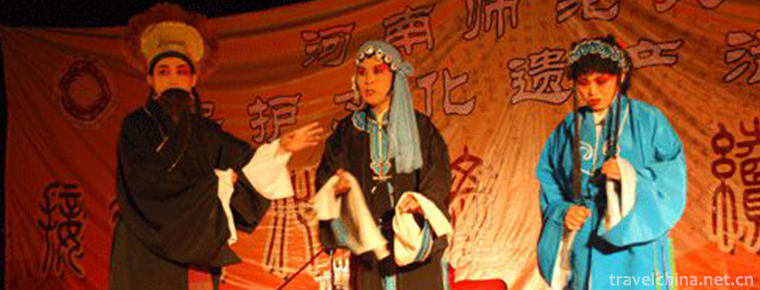
-
Dianchi Lake
Dianchi, also known as Kunming lake, Kunming pool, Yunnan Nan Ze....
Views: 182 Time 2018-10-21 -
Alice tomato noodles
The Ali brand was born in 2001 and officially launched in 2005. The brand popularity and honor of Ali Juice Noodle series products are constantly improving.
Views: 239 Time 2018-11-26 -
Zhenbeibao West Film City
Zhenbeibao Western Film City, located in Yinchuan City, Ningxia Hui Autonomous Region, is a national AAAAA-level tourist attraction integrating sightseeing, entertainment, leisure, catering and shoppi.
Views: 146 Time 2018-12-12 -
Shanghai Museum
The Shanghai Museum was founded in 1952. It was originally located at the Old Jockey Club at 325 Nanjing West Road. It moved to the Zhonghui Building at 16 Henan South Road in October 1959.
Views: 134 Time 2018-12-19 -
Eight Immortals Crossing the Sea Scenic Area
Eight Immortals Crossing the Sea Scenic Area, also known as Eight Immortals Crossing the Sea and Eight Immortals Crossing the Haikou, is situated on the shore of the North Yellow Sea in Penglai City.
Views: 207 Time 2018-12-23 -
Limutai Natural Scenic Area
Limutai Natural Scenic Spot is located at the northernmost end of Tianjin, known as "Tianjin Arctic". In the scenic area, the peak forest and canyon are strong and dangerous.
Views: 171 Time 2019-01-29 -
Tianlong Tunpu
Tianlong Tunpu Town is located in Pingba District, Anshun City, western Guizhou Province. Deep in the mountains of karst landform, Tiantai Mountain and Longan Mountain are two mountains.
Views: 180 Time 2019-02-21 -
Zhangye National Wetland Park
Zhangye National Wetland Park is located in the northern suburbs of Ganzhou District, Zhangye City, which is closely linked with the urban area. Wetland area of 62,000 mu, the main body is located in .
Views: 157 Time 2019-03-16 -
Stone Appreciation Art
In the form of both pictures and texts, Stone Appreciation Art popularizes the knowledge of Stone Appreciation Art to readers, especially young readers..
Views: 142 Time 2019-06-13 -
Yicheng Flower Drum
Yicheng Huagu, according to historical records, existed during the Zhenguan period of the Tang Dynasty, reached its peak in the Ming Dynasty, and only in the Qing Dynasty did this activity have a clea.
Views: 192 Time 2019-07-13 -
Tertiary industry in Guangan
In 2019, the total retail sales of social consumer goods in Guang'an will reach 55.4 billion yuan, an increase of 10.8%. By industry, the retail sales of wholesale, retail, accommodation and catering industries were 7.2 billion yuan, 39.27 billion yuan, 1.23 billi.
Views: 280 Time 2020-12-19 -
Dazhous first industry
In 2019, the annual grain planting area of Dazhou city is 556900 hectares, an increase of 0.3% over the previous year. Among them, rice was 191500 ha, an increase of 0.2%; maize was 137500 ha, an increase of 0.9%; potato was 162000 ha, a decreas.
Views: 190 Time 2020-12-20


